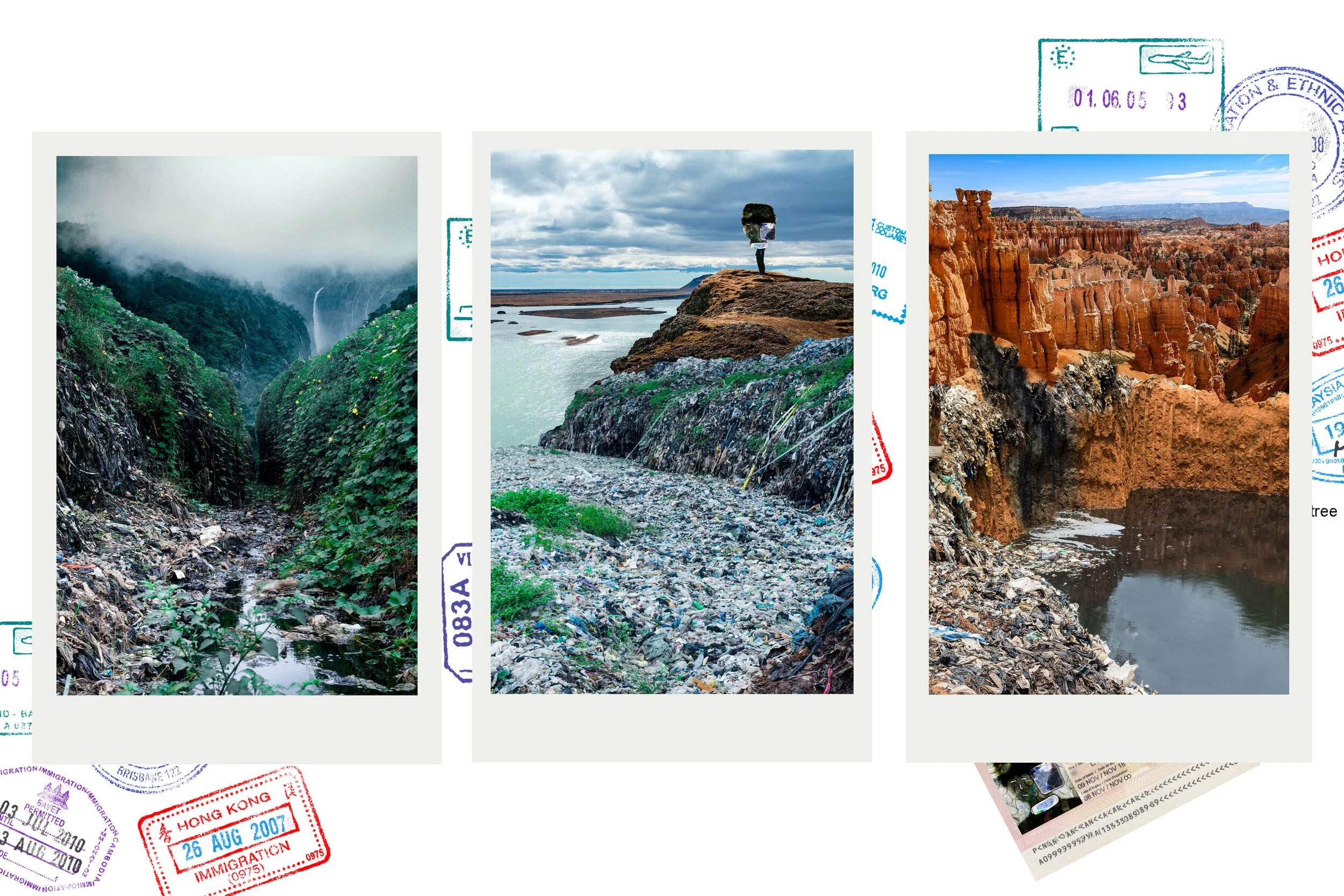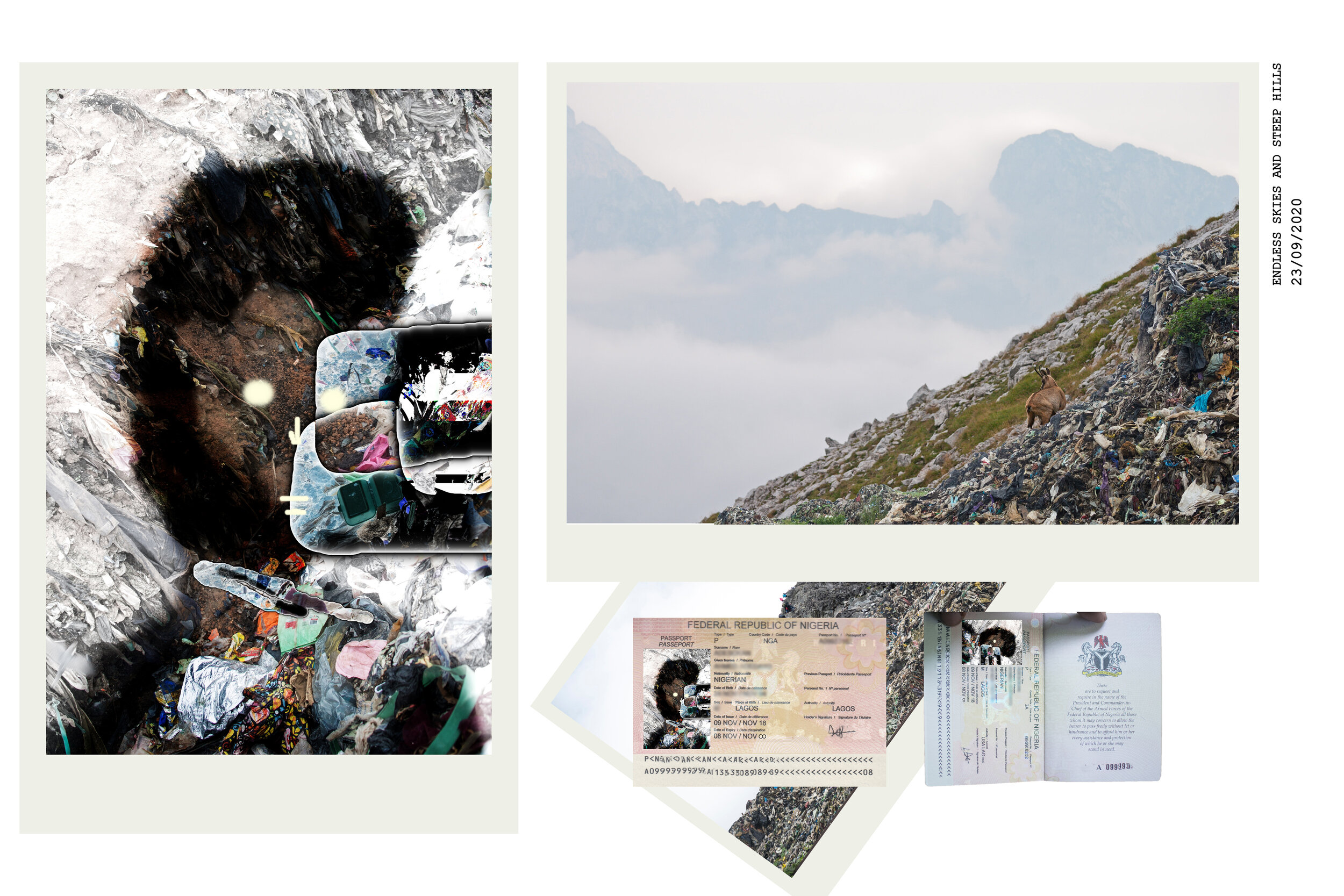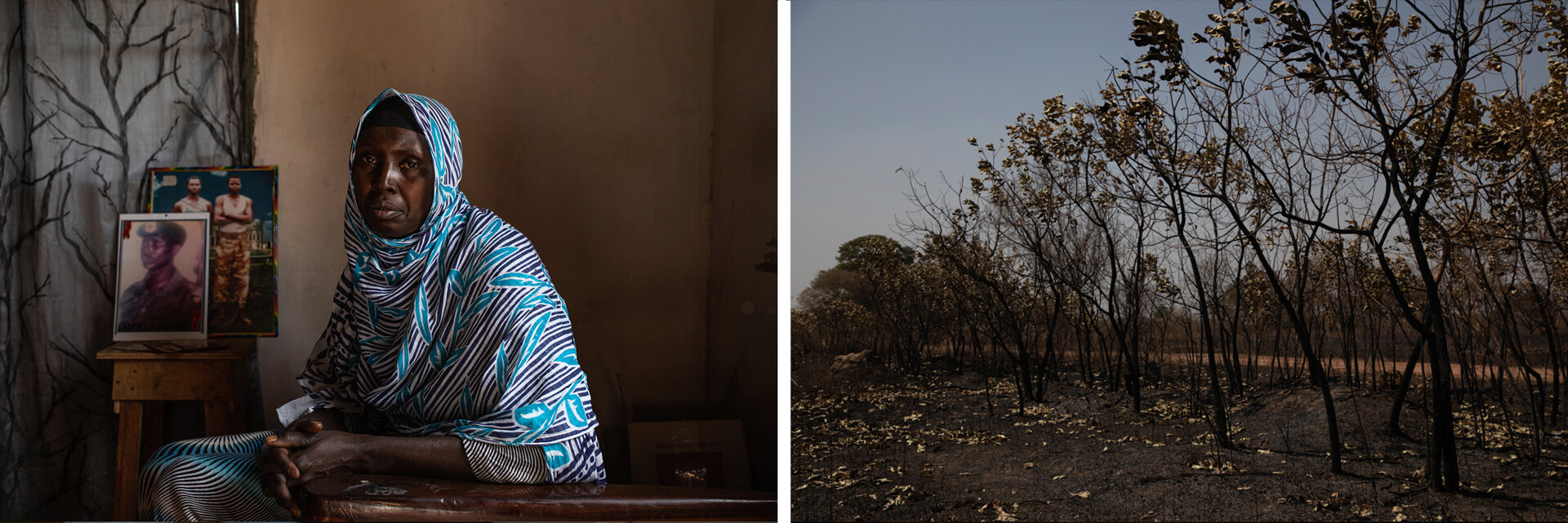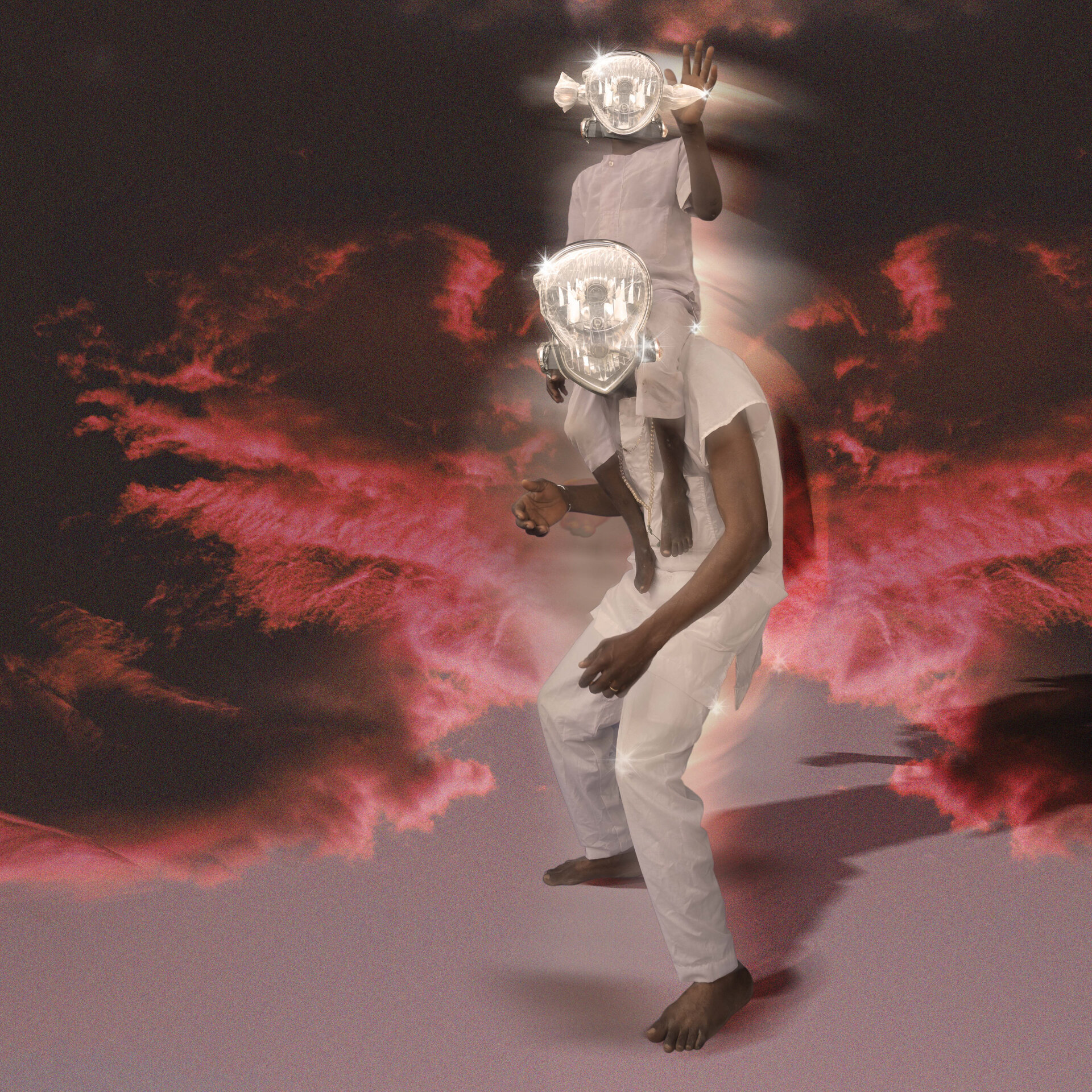CAP Prize 2021 | Winners
AND THE WINNERS OF THE CAP PRIZE 2021 ARE…
The five winners were selected by a panel of 21 international judges.
Aàdesokan
Born in 1994 in Lagos, Nigeria. Lives in Amsterdam, The Netherlands
www.aadesokan.com
Instagram: @manqbt | Twitter: @ManQBT
Waste Identity: Passport for Plastics, 2019
Untitled
Waste identity is an imaginary theorization, fixated on the relationship between waste and identity, to discover the feasibility of negotiating usage of the identity of waste as a metaphor for displacement and human migration. It acts as a method for the construction of consciousness, a consciousness of the visceral relationship plastic waste has with human migration.
The migration of people interplayed with the movement of waste shows that human migration is inhibited by borders, but waste moves freely, goes everywhere and anywhere, like a stretched parchment distributed all over our societal landscape, unaccountable. Its identity is interchangeable with human identity, plastic waste is prominent in our collective identity yet we hardly consider our waste Identity.
Using waste as a vehicle to explore broader social and political dynamics, will there be urgency if waste is treated like an immigrant in its movement? Would we then react differently to the movement of people? The International Passport acts as a placeholder for identity, it holds space and informs identity. Our waste identity faces no restrictions in its movements, it travels unhindered. Plastic waste is a huge part of the world population, perhaps issuing passports for plastics can check this flow since passports discriminate against the holders from entering and leaving a territory.
As an individual, I cannot move as freely as the waste I generate. We are in a reality where our waste travels the world freely, without being subject to scrutiny or suspicion. My waste identity allows me endless movement, it allows me privilege to move, perhaps in embodying this identity, the world would be fluid and permeable to me, I can go anywhere and everywhere, traveling far and wide, to the remotest places, unchecked, unhindered…
Katel Delia
Born 1975 in Thiais, France. Lives in Paris, France
www.katelia.com
Instagram: @artkatelia
Entre-Temps. De Malte à Tunis, 2019
Untitled
A photo lives through different times, every time differently. At the time they were taken, they were important, then they were kept, looked at, forgotten, finally rediscovered.
My Maltese father’s family has kept many pictures of their time in Tunisia, after emigrating from Malta. For me it is a sign that they wanted to preserve the memory and to transmit it. The Maltese of Tunisia are forgotten, and I would like to give them a place in history through these family photos. They are much more than most people think.
I established a connection with the places and the streets of Tunis, La Goulette and Le Khram. I reclaimed them, together with the memories giving them a universal sense.
What did I inherit from this period, from the 1930s to the 1960s? Can we be nostalgic for a place, an atmosphere we have not experienced?
More than a century ago, Maltese fled poverty to join Tunisia, a land of promise for a better future, today crossing is the other way…
Jason Florio
Born in 1965 in Kingston, United Kingdom. Lives in Cape Point, Gambia
www.floriophoto.com
Instagram: @jasonflorio | Twitter: @floriophotoNYC
The Gambia - Victims & Resisters Redux, 2021
(L) Pa Ousman Njie, torture victim (R) Banjul street near where he was abducted by National Intelligence agents_2019
Having worked and lived on and off in The Gambia since 1998, Helen Jones-Florio, my wife and collaborator were personally aware of former President Yahya Jammeh’s control over society through fear, intimidation and human rights violations. Jammeh ruled The Gambia as his fiefdom for 22-years, crushing dissent and opposition with brutality. His hit-squad and Intelligence Agency carried out tortures, assassinations, and acts of sexual violence with impunity - journalists were gunned down and disappeared, students shot in cold blood, and even his cousins were murdered on his order. But, society was muted- Jammeh had informers everywhere, and we, along with most residents, dared not criticise or question openly out of fear for our safety and that of our colleagues.
It was not until Jammeh fled into exile in January 2017, after an astonishing election defeat, did the litany of violations under his regime start to come to light. The Gambia has been our second home and we felt it was our duty as documentarians to give face and voice to the victims, survivors, and their families. Despite hundreds of testimonies by both victims and perpetrators at the on-going Truth Reconciliation and Reparations Commission, many Jammeh loyalists are still in denial of the crimes, he and his cadre are now being accused of. Making it important to keep bringing the victims stories to public attention.
Since 2017, we have photographed over one-hundred-and-twenty portraits, sites of violations and recorded video testimonies. Our work aims to expose the wide-reaching forms and scale of abuse - to create a historical archive and to be used as a tool for advocacy and public awareness. Early in the project, we came to understand that many people who sat for the portraits found it cathartic, having previously not been able to openly tell their stories, and so our work took on additional and profound meaning and made it a collaborative process. Alagie Sonko, falsely imprisoned by the regime, said to us “I don’t care what you do with my picture or my story, but the fact you came and listened to me, that is enough”.
Fabrice Monteiro
Born in 1972 in Namur, Belgium. Lives in Ngaparou, Senegal
www.fabricemonteiro.viewbook.com
Portrait-Type, 2020
Homme Type Fon
During an artistic residency in Benin with the Fondation Zinsou, I decided to revisit the photographic technique of the "composite portrait" developed around 1878 by Francis Galton. This technique was first used to define the typical portrait of the criminal. Later, Arthur Batut (1846-1918) proposed to use the same technique to create the typical portrait of a family, an ethnic group or a race. The process consists of a millimetric superimposition of exposed portraits of individuals belonging to the same group. The result is supposed to give a representative portrait of the group, leaving only the main features characteristic of the group visible in the image.
The "Age of Enlightenment" saw the birth of racialism in Europe, which served as a tool to classify and divide people. The aim of this work is to demonstrate that the notion of race being totally subjective, the use of photography to identify it was very disappointing. "By trying to prove too much, you prove nothing except that all men are brothers.
I travelled around Benin to meet eight ethnic groups: the Peuls in Tanguieta, the Somba in Koussou, the Yoms in Sapaha, the Dendi in Songo, the Baribas in Boko, the Tofin in Sohava, the Nago in Pobé and the Fons in Lokozon. Each portrait is composed of 6 superimposed portraits of individuals belonging to the same ethnic group. "La femme Type Fon" is the result of six superimposed photographs of women. The final portrait looks like none of them and all of them at the same time. From a distance you can see one face and when you get closer you can read the superimposition of the faces. I followed the operating process of ethnographic photography with a backdrop installed on a removable frame, a height-adjustable stool and a holding system at the back of the head to keep the subjects upright, the eyes being the central reference.
Joseph Obanubi
Born in 1994 in Lagos, Nigeria. Lives in Lagos, Nigeria
www.josephobanubi.com
Instagram: @josephobanubi | Twitter: @josephobanubi
Techno Heads, 2020
Seagull dance II
Techno-Heads examines globalization as it affects technology, continued human interactions as well as movement - Navigation of spaces. The project focuses on how individuals within contemporary African society navigate through day-to-day patterns of life, infiltrated with technology, even in its simplest form. It shows how the contemporary society strongly revolves around and depends on technology for communication, motion, and navigation, all of which are central aspects of human existence. This project portrays figments of this phenomenon as part of a being, swapping naturally occurring forms of the subjects with an infusion of mechanized forms projecting the idea of a techno-utopia. It also dabbles into the concept of Metaphysics in the African context, exploring how identity, space and time have become intricately linked with even the simplest products of technology. It seeks to merge African metaphysics and (simple) technology to explain alternate reality and how they portray techniques and concepts of freedom for Africans in contemporary society.













































